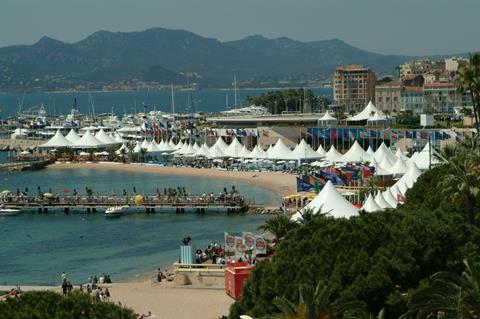
A sexual harassment hotline put in place by the Cannes Film Festival and France’s Ministry for Gender Equality in a bid to stamp out sexual harassment at the festival has generated its first complaint being filed at the Cannes police station.
French Minister for Gender Equality Marlène Schiappa told journalists on Saturday that call handlers working on the hotline had accompanied an “Anglo-saxon woman” to the police station on Friday evening after taking her call. She did not give details on the nature of the alleged crime or the person who lodged the complaint.
Sciappa told journalists she had visited the support cell on Saturday morning where three women worked from “early in the morning to early three in the morning.”
“This hotline is important simply because it exists and also because it marks the end of a form of solitude. Before if someone was a victim of sexual assault or harassment at the festival they were powerless, particularly if they didn’t speak the local language.”
“We’re in an international festival where women speak English, Italian, Spanish, Russian and Chinese. They were are all the more powerless because they don’t speak the language and don’t understand the legal system in France,” she said.
New hotline
The new hotline is among a raft of measures and events aimed at stamping out sexual harassment at the festival, which also includes flyers and warnings on festival literature detailing the sentences for sexual harassment under French law.
Some women at the festival have expressed disquiet at the way in which the hotline has been set-up due to the fact that the call handlers are not people professionally trained to support sexual assault victims.
Quizzed on this, the festival responded that the aim of the hotline was not to provide professional support to victims but rather connect them, and accompany them if needs to be, to the relevant emergency and support services.
“The call handlers work closely with security staff and emergency services connected to the festival, such as firemen, doctors and the police as well as associations specialising in helping victims,” a festival spokesperson said.
“For each call, the call handler has the role of being the first port of call who listens to the victim’s story and who, if it is necessary, connects them with the right professional, whether it be the police, a doctor or an association,” said the festival. “If the victim wishes, the call handler can also accompany them and stay with them at the police station, or at the hospital. This is particularly important if the victim doesn’t speak French.”
“Our objective isn’t to substitute the professionals trained to look after these victims, who already do a remarkable work on the ground, but rather to make connections, and point people in the right direction and accompany if they need it. This is particularly necessary in an environment like the festival where there are lots of international guests.”
The festival added that the three women handling the calls had been recruited by the festival for their ability to speak several languages as well as for their qualities of “empathy”, being “good listeners” and also having an ability to manage and analyse stressful situations.”
The creation of the hotline comes in the wake of the Harvey Weinstein scandal, revolving around multiple accusations of sexual harassment against the once powerful producer, which has lifted the lid on the wider problem throughout the global film industry and sparked the creation of the #MeToo and Time’s Up movements.
Italian actress Asia Argento, who was one of the first cinema celebrities to come forward with her testimony, accused the producer of sexual assault in his suite at the Hotel du Cap during the 1997 edition of the festival.
France is considering rolling the hotline scheme out across other big cultural events taking place places in the country.

























No comments yet